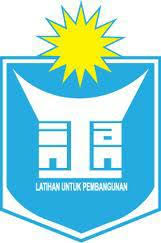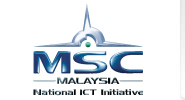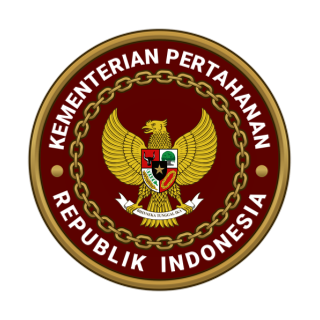The New Economic Policy (NEP) was a social re-engineering and affirmative action program formulated by the National Operations Council (NOC) in the aftermath of 13 May Incident in Malaysia. This policy was adopted in 1971 for a period of 20 years and it was succeeded by the National Development Policy (NDP) in 1991. This article looks into the historical context that gave rise to the formulation of this policy, its objectives and implementation methods as well as its impact on the Malaysian economy in general.

Public administration, or public policy and administration, is the academic discipline that studies how public policy is created and implemented. It is also a subfield of political science that studies policy processes and the structures, functions, and behavior of public institutions and their relationships with broader society. The study and application of public administration is founded on the principle that the proper functioning of an organization or institution relies on effective management.

The Cabinet Office (CAO) is an agency of the Cabinet of Japan. It is responsible for handling the day-to-day affairs of the Cabinet.

The National Principles is the Malaysian declaration of national philosophy instituted by royal proclamation on Merdeka Day, 1970, in reaction to the 13 May race riots, which occurred in 1969. The incident proved at that time that Malaysian racial balance and stability was fragile. Immediately thereafter, the Malaysian government sought ways to foster unity among the various races in Malaysia. Therefore, the National Principles were formed.
The civil service in Malaysia is pivotal around Article 132 of the Constitution of Malaysia which stipulates that the public services shall consist of the Federal and State General Public Service, the Joint Public Services, the Education Service, the Judiciary and the Legal Service and the Armed Forces.
The Cabinet of Malaysia is the executive branch of the Government of Malaysia. Led by the Prime Minister, the cabinet is a council of ministers who are accountable collectively to the Parliament. According to the Article 43 of the Federal Constitution, members of the Cabinet can only be selected from members of either houses of Parliament. Formally, the Yang di-Pertuan Agong appoints all Ministers on the advice of the Prime Minister. The constitution is amended by repealing the Clause (8) of Article 43, enabling a person who is a member of State Legislative Assembly to continue to serve even while serving as a minister or deputy minister in the cabinet. Ministers other than the Prime Minister shall hold office during the pleasure of the Yang di-Pertuan Agong, unless the appointment of any Minister shall have been revoked by the Yang di-Pertuan Agong on the advice of the Prime Minister but any Minister may resign from office. In practice, the Yang di-Pertuan Agong is obliged to follow the advice of the Prime Minister on the appointment and dismissal of ministers.
The Information Technology Management Reform Act of 1996 is a United States federal law, designed to improve the way the federal government acquires, uses and disposes information technology (IT). It was passed as Division E of the National Defense Authorization Act for Fiscal Year 1996. Together with the Federal Acquisition Reform Act of 1996, it is known as the Clinger–Cohen Act.
The Philippines' Presidential Management Staff is an agency attached to Malacañang that is tasked to manage the development and formulation of the projects and policies of the Office of the President. Though the PMS is headed by a Secretary, the Secretaries of the Cabinet, Chief of Staff, and Appointments, support the agency. The PMS, the Office of the Appointments Secretary and the newly created Events Management Cluster are under the supervision of the Office of the Special Assistant to the President.
E-Government in South Korea progressed notably with the establishment of the National Computerization Agency (NCA) in 1986, and was further developed under President Kim Dae-jung's administration with the creation of the Presidential Special Committee for e-Government (SCeG) in 2001. The passage of the Electronic Government Act of 2001 provided the essential legal framework, facilitating the advancement of e-government initiatives.

The Ministry of Women, Family and Community Development, abbreviated KPWKM, is a ministry of the Government of Malaysia responsible for social welfare: children, women, family, community, older people, destitute, homeless, disaster victim, disabled. The ministry determines the policies and direction to achieve the goals of gender equality, family development and a caring society in line with Malaysia's commitment towards the United Nations' Convention on the Elimination of All Forms of Discrimination Against Women and the Beijing Declaration.

The Royal Malaysian Customs Department is a government department body under the Malaysian Ministry of Finance. RMCD functions as the country's main indirect tax collector, facilitating trade and enforcing laws. The top management of JKDM is led by the Director General of Customs and assisted by 3 deputies, namely, the Deputy Director General of Customs Enforcement/Compliance Division, the Deputy Director General of Customs Customs/Inland Tax Division and the Deputy Chief Director of Customs Management Division. The Royal Malaysian Customs Department consists of several divisions, namely the Enforcement Division, the Inland Tax Division, the Compliance Division, the Customs Division, and the Technical Services Division.

The National Institute of Public Administration or popularly known as INTAN is a Malaysian government agency responsible for the training of civil servants in management and administration.

MSC Malaysia is a Special Economic Zone and high-technology business district in central-southern Selangor, Malaysia.
The Department of Public Expenditure, National Development Plan Delivery and Reform is a department of the Government of Ireland. It is led by the Minister for Public Expenditure, National Development Plan Delivery and Reform.

The Ministry of Justice is one of the 12 ministries which comprise the Finnish Government. Headed by the Minister of Justice, it is responsible for maintaining the legal safeguards necessary for the successful operation of democracy and fundamental rights of the inhabitants of Finland.

The Ministry of Finance, abbreviated MOF, is a ministry of the Government of Somalia that is charged with the responsibility for government expenditure and revenue raising. The ministry's role is to develop economic policy and prepare the federal budget. The Ministry of Finance also oversees financial legislation and regulation. Each year in October, the Minister of Finance presents the Somali federal budget to the Parliament.

The Ministry of Defense is an Indonesian government ministry responsible for the defense of Indonesia. The ministry was formerly known as the Department of Defense until 2009 when the nomenclature changed based on Act Number 39 of 2008 on State Ministries, the name of the Department of Defense was changed to the Ministry of Defense of the Republic of Indonesia. The currently-appointed minister is Prabowo Subianto, replacing Ryamizard Ryacudu on 23 October 2019.

The Ministry of National Development Planning/National Development Planning Agency is a ministry of the Republic of Indonesia that has the task to oversee government affairs in the field of national development planning to assist the President in organizing state government. The minister is responsible to the President. The Ministry of National Development Planning uses organizational units and resources within the National Development Planning Agency.

The Cabinet Secretariat of the Republic of Indonesia is a government agency working directly beneath and answerable to the President of Indonesia. Its duties are to provide governance support for the president and vice president in managing the cabinet.
In Inner Mongolia, China, a sum or sumu is a township-level political/administrative division. The sum division is equivalent to a township but is unique to Inner Mongolia. It is therefore larger than a gaqa (village) and smaller than a banner. Examples include Shiwei, Inner Mongolia and Honggor Sum, Siziwang Banner.














